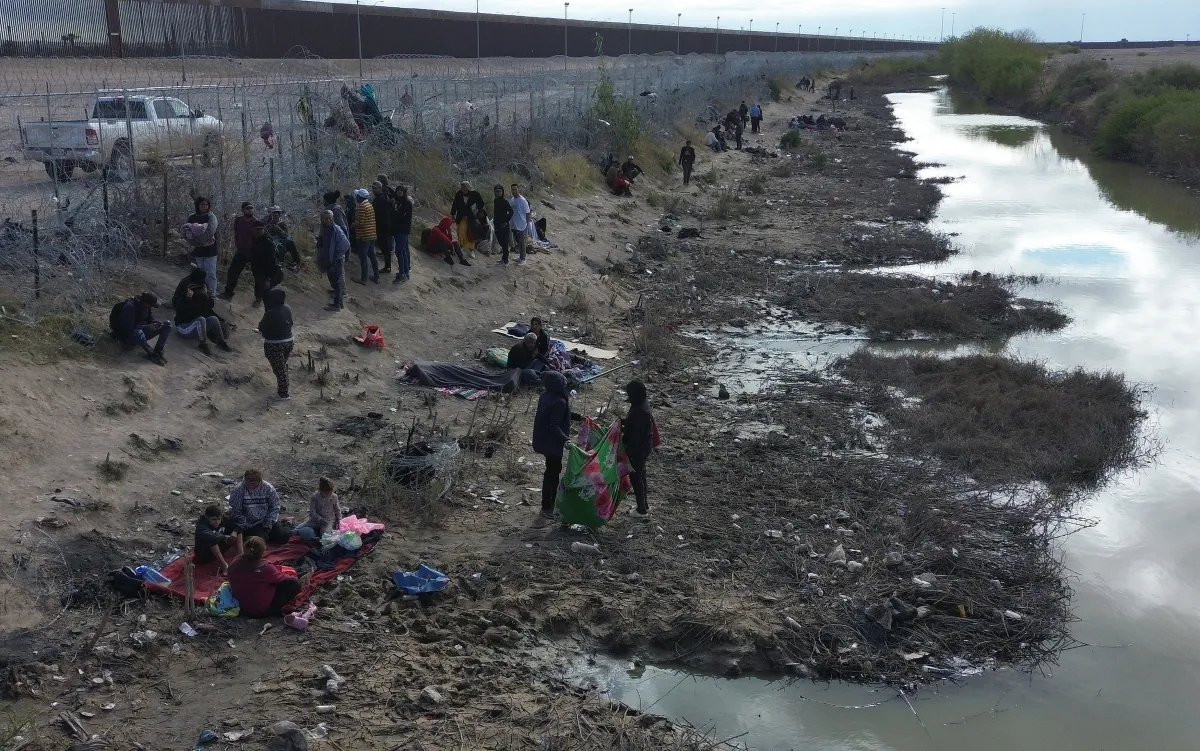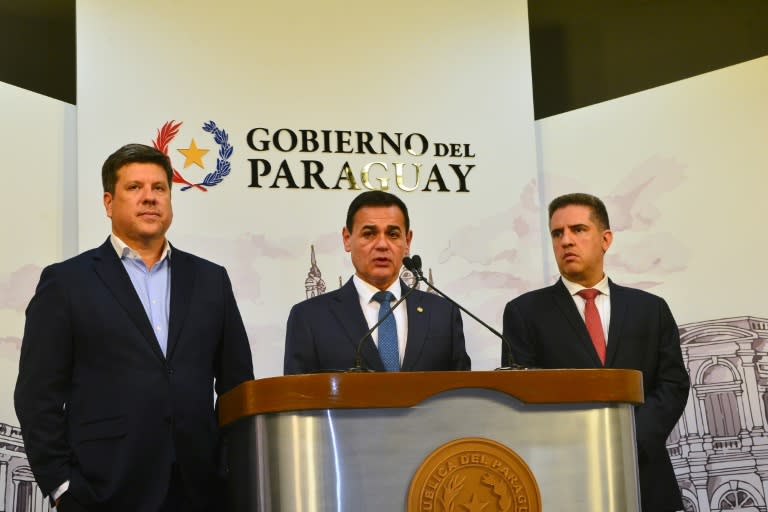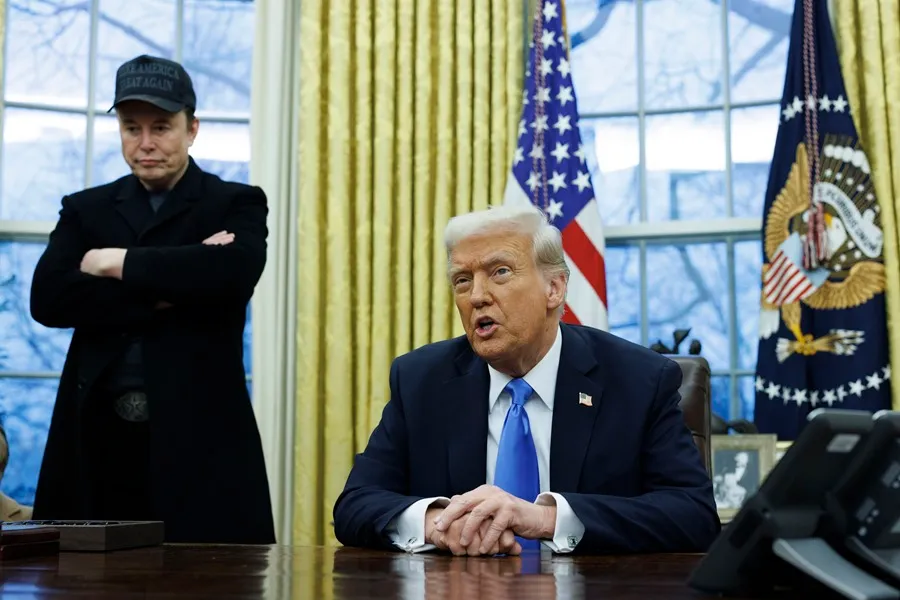International
Keys to the anti-immigrant law of Texas and states that follow its example

The Texas SB-4 law, considered one of the most drastic anti-immigrant measures in the history of the United States along with the SB-1070 of Arizona of 2010, has raised the tension in the border area of the United States and Mexico and has inspired other states of Republican governments to follow in its footsteps.
In the midst of the complicated legal battle between the state and federal governments, which prevented this measure from entering into force on March 5, uncertainty grows among undocumented immigrants, and also legal immigrants, because it lends itself to racial discrimination.
The measure, promoted by the governor of Texas, Republican Greg Abbott, makes it a misdemeanor that a foreigner “enters or attempts to enter the state from a foreign nation” irregularly. The detained migrant will be accused of a misdemeanor, which carries a penalty of up to six months in prison.
If the offender is a repeat offender, the offense becomes a serious crime, punishable by up to 20 years in prison.
The law allows the state Justice (different from immigration judges) to order the expulsion of the foreigner without legal process. A judge could withdraw the charges if the migrant agrees to return to Mexico.
SB-4 also prohibits any local policy that restricts police officers from questioning a person’s immigration status, even during routine arrests such as at traffic stops, which are promoted in the so-called “immigrant sanctuaries.”
The measure requires local authorities to allocate resources such as prison space, agents and funds to implement the law.
The initiative prohibits the police from arresting immigrants in public or private schools, churches and other places of worship, and medical centers. However, it does not mention university campuses.
-Iowa: The House of Representatives of that state approved a bill on Tuesday. It would allow the police to arrest certain undocumented immigrants and order them to leave the country.
Undocumented immigrants could face up to two years in prison if they enter, attempt to enter or are found in Iowa, after they were denied entry to the United States or had been deported.
The measure is addressed to the desk of Governor Kim Reynolds, who has given her support to the legislation.
– New Hampshire: The Senate of that state approved at the beginning of the month a bill that allows the police to file charges of invasion of private property against people suspected of having illegally entered the United States from Canada. The initiative is currently being discussed in the House of Representatives of that state.
– Tennessee: Last Friday, lawmakers from the Lower House of Tennessee approved a bill that requires police officers to report to the Department of Homeland Security (DHS) that they have come across an undocumented person.
– Georgia, Florida, Louisiana and North Carolina: The legislatures of these states have approved or are discussing bills similar to Texan law. They impose harsh sanctions on the undocumented under the argument that they must act to contain the arrival of migrants.
– Arizona: The governor of that state, Democrat Katie Hobbs, has a measure on her table, dubbed the Arizona Invasion Law. It would criminalize immigrants by authorizing police departments to arrest and arrest foreigners who cross the border illegally.
This project, promoted by the Republicans and expected to veto Hobbs, would also grant immunity to the police and their departments from any legal action against them due to possible incidents that occurred while the law is being applied.
International
Paraguay summons Brazilian ambassador over Itaipú espionage scandal

Paraguay summoned the Brazilian ambassador in Asunción on Tuesday to demand “explanations” and called its own representative in Brasília for consultations following Brazil’s acknowledgment of an espionage operation. The Brazilian government, led by President Luiz Inácio Lula da Silva, attributed the operation to the previous administration.
The surveillance effort aimed to uncover Paraguay’s position in now-suspended negotiations with Brazil regarding the pricing of electricity from the binational Itaipú hydroelectric plant, according to reports in the Brazilian press.
The Brazilian government “categorically denied any involvement in the intelligence operation,” stating in a Foreign Ministry communiqué on Monday that the espionage was carried out under former President Jair Bolsonaro’s administration (2019-2023).
“The operation was authorized by the previous government in June 2022 and was annulled by the interim director of the (state intelligence agency) ABIN on March 27, 2023, as soon as the current administration became aware of it,” Brazil’s government asserted.
Paraguay’s Foreign Minister Rubén Ramírez announced that Brazilian Ambassador José Antonio Marcondes de Carvalho was summoned “to provide detailed explanations” regarding the operation. Additionally, Paraguay recalled its diplomatic representative in Brasília “to report on aspects related to the intelligence activity conducted by Brazil regarding Paraguay’s government affairs.”
International
Elon Musk to step down as government advisor, per Trump insiders

President Donald Trump has informed his inner circle that Elon Musk will be stepping down from his role as a government advisor, according to a report by Politico today.
Citing three individuals close to Trump, Politico states that the president is pleased with Musk’s leadership at the Department of Government Efficiency (DOGE), where he has implemented significant budget cuts. However, both have agreed that it is time for Musk to return to his businesses and support Trump from a different position outside the government.
A senior administration official told Politico that Musk will likely maintain an informal advisory role and continue to be an occasional visitor to the White House. Another source warned that anyone thinking Musk will completely disappear from Trump’s circle is “deluding themselves.”
According to the sources, this transition is expected to coincide with the end of Musk’s tenure as a “special government employee,” a temporary status that exempts him from certain ethics and conflict-of-interest regulations. This 130-day period is set to expire in late May or early June.
International
Milei vows to make Argentina so strong that Falkland Islanders “choose” to join

Argentine President Javier Milei reaffirmed his country’s claim over the Falkland Islands (known as the Islas Malvinas in Argentina) and praised the role of the nation’s armed forces during a ceremony marking the “Veterans and Fallen Soldiers of the Malvinas War Day,” commemorating 43 years since the 1982 conflict with the United Kingdom.
Argentina continues to assert sovereignty over the islands, arguing that Britain unlawfully seized them in 1833.
“If sovereignty over the Malvinas is the issue, we have always made it clear that the most important vote is the one cast with one’s feet. We hope that one day, the Malvinas residents will choose to vote with their feet and join us,” Milei stated.
“That is why we aim to become a global power—so much so that they would prefer to be Argentine, making deterrence or persuasion unnecessary. This is why we have embarked on a path of liberation, working to make Argentina the freest country in the world and once again the nation with the highest GDP per capita on the planet,” he added.
-

 International5 days ago
International5 days agoSon of journalist José Rubén Zamora condemns father’s return to prison as “illegal”
-

 Central America3 days ago
Central America3 days agoU.S. Homeland Security Secretary urges Mexico to strengthen Guatemala border
-

 International5 days ago
International5 days agoMiyazaki’s style goes viral with AI but at what cost?
-

 Central America4 days ago
Central America4 days agoPanama police clarifies that Interpol alert for Martinelli is still pending
-

 International3 days ago
International3 days agoTrump urges Putin to reach peace deal
-

 International23 hours ago
International23 hours agoParaguay summons Brazilian ambassador over Itaipú espionage scandal
-

 Central America3 days ago
Central America3 days agoPanama grants Martinelli 72-hour extension to travel to Nicaragua
-

 International4 days ago
International4 days agoDeportation flight lands in Venezuela; government denies criminal gang links
-

 Sports24 hours ago
Sports24 hours agoFilipe Luis debuts as coach in Copa Libertadores with Flamengo
-

 Central America21 hours ago
Central America21 hours agoGuatemalan police officer killed in mob riots over baby kidnapping
-

 International24 hours ago
International24 hours agoElon Musk to step down as government advisor, per Trump insiders
-

 International24 hours ago
International24 hours agoICE agent’s arrest of suspect sparks controversy in Boston
-

 International24 hours ago
International24 hours agoMilei vows to make Argentina so strong that Falkland Islanders “choose” to join
-

 Sports23 hours ago
Sports23 hours agoVenezuela investigates 18 baseball players seeking asylum in Spain
-

 International24 hours ago
International24 hours agoÓscar Arias: Trump’s trade policies are a step backward



















